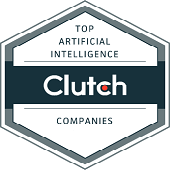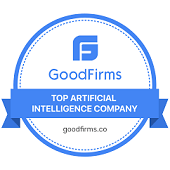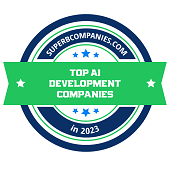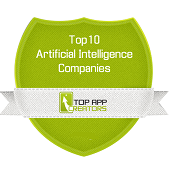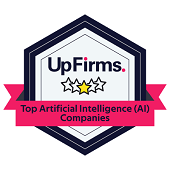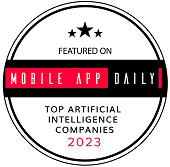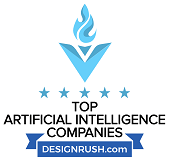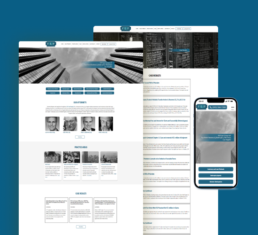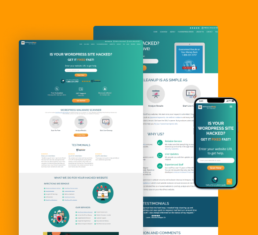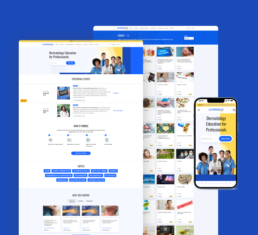Our team of AI specialists offers advanced generative AI development services that are customized to address your specific business requirements. We utilize generative artificial intelligence to develop software & applications that unlock endless possibilities. By seamlessly integrating GenAI into your digital products, we help you enhance efficiency, streamline processes, and take your business to new heights.
RedBlink’s professionals leverage the latest generative AI models such as GPT-4, Llama, and PaLM-2 to create innovative and intelligent apps that deliver exceptional results. With our expertise in gen AI development, we can help you stay ahead of the curve and achieve your business goals.
Earning Recognition As The Best Generative AI Development Agency
250+
Tech Experts
160+
Products Delivered
98%
Success Rate
20+
Total Years of Experience
Capture Global Attention With Generative AI Development
We leverage our extensive expertise in various AI technologies, such as deep learning, machine learning, computer vision, reinforcement learning, and natural language processing, to design specialized GenAI models and solutions that are tailored to your specific domain.
Generative AI Consulting Services
With our deep understanding of generative AI models and technologies, we will work closely with you to develop a customized strategy that addresses your specific needs. Our goal is to guide businesses to leverage advanced algorithms and technologies for creative and innovative solutions and achieve optimal results.
Generative AI Model Development
Our team leverages machine learning algorithms like RNNs, Transformers, Markov Chain, GANs, and Autoencoders to create custom generative AI models that meet your business requirements. We configure and train these models to industry standards, ensuring high-quality generative AI solutions.
Generative AI Model Replication
Our team is experienced in replicating and recreating state-of-the-art generative AI models like ChatGPT and DALL-E for various industries. By utilizing our generative AI modeling services, businesses can unlock new growth opportunities and gain a competitive edge in their respective niches.
Generative AI Model Integration & Deployment
To ensure a secure & efficient integration and deployment of AI models, our team analyze your business needs. Our Generative AI software development services include constructing the most suitable model, customizing it to align with your specifications, and proficiently managing integration, testing, and deployment process.
Upgrade and Maintenance
At the core of our mission is to ensure our clients remain at the cutting edge of technology. With a team of highly skilled developers, we are dedicated to enhancing and managing generative AI models. This enables businesses to maximize their performance, seamlessly adapt to changing demands, and foster ongoing growth and innovation.
Domain Specific AI Model
We specialize in developing domain-specific generative AI models that enable businesses to fully harness the power of AI in a way that is both relevant and impactful. Our process involves thoroughly assessing your industry and business objectives, selecting a foundational model, and fine-tuning it by integrating it with your proprietary data.
WHY DO YOU NEED GENERATIVE AI DEVELOPMENT SERVICES?

Enhanced Creativity
Generative AI can produce new and unique outputs, from art and design to innovative solutions for complex problems. This capability enhances human creativity, allowing for the exploration content, ideas, and roadmaps that inspire new directions for your products or services, helping you stay ahead of the curve and captivate your audience.

Increased Productivity
By automating content generation, such as coding, marketing materials, or product design, you can significantly increase your productivity. Generative AI is capable of producing results at a much faster rate than humans, particularly for tasks that are repetitive or involve handling large amounts of data. This leads to faster decision-making, better resource allocation, and optimized workflows, allowing you to accomplish more in less time and gain a competitive advantage.

Cost Reduction
As generative AI technology continues to advance, it has the potential to revolutionize various industries by automating tasks, improving efficiency, and reducing errors. By doing so, it can significantly cut operational costs while maintaining or even improving the quality of products or services. This is because automation eliminates the need for manual labor, which can be expensive and prone to errors. Additionally, by streamlining workflows and reducing the time required to complete tasks, organizations can save money on labor costs and resources. Ultimately, this can lead to a competitive advantage in today’s dynamic market, as companies that adopt these technologies can operate more efficiently and cost-effectively than their competitors.

Increased Automation
With our generative AI development services, you can gain a competitive edge by implementing advanced automation throughout your business. By leveraging AI-driven processes to handle repetitive tasks, you can strategically allocate your workforce, allowing them to focus on innovation and driving growth for your company.

Enhanced Security
Generative AI development plays a crucial role in detecting and preventing cyber threats by analyzing vast volumes of data and detecting potential security breaches. Through the utilization of generative AI technology, patterns in network traffic can be examined, anomalies identified, and suspicious activity detected in real-time. This proactive approach enables companies to swiftly respond to security threats, preventing data breaches that could lead to significant financial losses and reputational damage.

Improved Customization
Generative AI development empowers companies to deliver highly personalized experiences to their customers by leveraging data analysis and content generation based on individual preferences and behavior. These systems can tailor outputs to specific requirements or preferences. In industries such as marketing, e-commerce, and entertainment, this level of customization ensures that content closely aligns with each user’s preferences, resulting in enhanced user experience and engagement.
For instance, generative AI can create personalized recommendations for products, services, or content by analyzing a customer’s past behavior, interests, and preferences. This level of customization enhances customer engagement and loyalty, ultimately leading to increased revenue and profitability for the company.

Data Analysis & Insights
Generative AI is adept at analyzing complex datasets and can uncover patterns and insights that might be missed by human analysts. This capability is invaluable in fields like healthcare, finance, and scientific research, where making data-driven decisions is crucial.

Enhanced Learning & Development
In education and training, generative AI can revolutionize the way learning materials and simulations are created, offering a more interactive and personalized learning experience. With generative AI technology, educational content can be dynamically generated based on the individual needs and learning styles of students.
Additionally, generative AI can be used to create virtual simulations and scenarios that provide hands-on training experiences in various fields such as healthcare, aviation, or technical skills. These simulations allow learners to practice real-world scenarios in a safe and controlled environment, accelerating the learning process and ensuring better preparedness for practical applications.
Our Areas of Expertise

Generative Models
Developing domain-specific models through fine-tuning foundation models like GPT-4, encompassing architecture, training processes, and applications.

NLP
We leverage our expertise in NLP to develop robust applications for text generation, sentiment analysis, text summarization, and translation.

Machine Learning
Our proficiency in diverse ML techniques allows us to adapt and apply AI solutions across various applications, effectively addressing diverse business needs.

Deep Learning
Working with complex neural networks, implementing cutting-edge algorithms, and delivering customized solutions that unlock the full potential of AI for clients.

Data Collection
Collecting and annotating large datasets, a critical step in training generative models, to ensure high-quality training data.

Model Fine-tuning
Expertise in fine-tuning pre-trained models like GPT-3.5 and GPT-4 enables us to build highly adaptable solutions tailored to clients' specific needs and domains.
EMPOWERING BUSINESSES WITH AI MODEL EXPERTISE

GPT-4
A set of OpenAI models that can solve complex problems with high accuracy, thanks to its advanced reasoning capabilities and broader general knowledge.

LLaMA
LLaMA (Large Language Model Meta AI) is a foundational large language model designed to generate text, have conversations, summarize written material, solve math theorems or predict protein structures.

PaLM 2
The newest extensive language model from Google, stands out in performing intricate reasoning assignments, such as code interpretation, mathematical solutions, categorization, query responses, and translation with proficiency in multiple languages. This model highlights Google’s commitment to responsible AI, surpassing previous capabilities in natural language generation.

Claude
Claude is a large language model (LLM) by Anthropic, trained as a virtual assistant that can be integrated with business workflows. Claude, accessible through both a chat interface and API in Anthropic’s developer console, can perform an extensive range of conversational and text-processing tasks.

GPT-3
A set of OpenAI models that can solve complex problems with high accuracy, thanks to its advanced reasoning capabilities and broader general knowledge.

GPT-3.5
A set of OpenAI models, including the highly capable and cost-effective Gpt-3.5-turbo, that improve on GPT-3 and can generate text or code.

DALL.E
DALL·E by OpenAI generates realistic images and artwork based on text prompts. It can produce images of a specified size, modify pre-existing images and generate variations of user-provided images.

Whisper
Whisper is a general-purpose speech recognition OpenAI model that can perform language identification, speech translation and multilingual speech recognition.

Embeddings
OpenAI’s Embeddings are numerical representations of linguistic units like words and phrases that capture the semantic meaning and relationships between them.

Moderation
Moderation models are machine learning OpenAI models designed to assist in content moderation tasks, such as identifying and removing inappropriate or harmful content from online platforms.

Stable Diffusion
Stable Diffusion generates detailed images from text prompts and can also be used for tasks like inpainting, outpainting, and image-to-image translations guided by text.

Bard
Google’s Bard, powered by LaMDA, is a text-to-text generative AI chatbot designed to generate human-like responses to natural language prompts, making it capable of engaging in conversations with humans.
Transforming Industries with Generative AI Solutions
Maximize your competitive advantage with our industry-focused services, tailored to your unique business challenges and goals.

Real Estate

Travel

Fintech

Gaming

Logistics

Edtech

Automotive

Hospitality

IT
Our Generative AI Development Process


Identify Goals And Objectives
The first step in any project is to clearly define the objectives, needs, and constraints. This involves identifying the specific problem you are trying to solve, the desired outcome, and the target audience. It is important to understand what stakeholders expect from the final product or system. This will help guide the project and ensure that it meets the needs of all parties involved.

Data Preparation for Strategy Building
This step focuses on collecting, cleaning, and organizing data, ensuring it is of high quality and relevant for training the AI model, thus laying the groundwork for effective strategy formulation.

Generative AI Model Training for Design and Development
During this stage of generative AI application development, advanced deep learning algorithms are utilized to train the models. The prepared data will be used to train the generative AI model, employing algorithms to learn patterns and generate outputs that meet the defined requirements. The training process optimizes the model's performance, improving accuracy and effectiveness to ensure it produces the desired output.

Testing & Validation
Once the generative AI models are trained, testing is conducted to verify that it is producing the desired output. A process to assess performance, accuracy, reliability, and robustness. Rigorous testing techniques are employed during the product development phase of generative AI to detect potential issues or areas for improvement before deploying the solution.

Deployment & Integration
Once the generative AI solution has passed the testing phase, it is deployed and integrated into the client's existing systems or applications. The integration process is carried out with meticulous attention to seamless integration, compatibility, and scalability, all designed to meet the client's operational requirements.

Monitoring and Maintenance
Continuous monitoring and maintenance play a crucial role in ensuring the generative AI solution performs optimally after deployment. This stage of generative AI software development involves actively monitoring for any issues, updating models as needed, and incorporating feedback to continually enhance and improve the solution over time.
Why RedBlink

AI Expertise
Our team of highly skilled machine learning engineers, data scientists, and domain experts has extensive expertise in building Generative AI models.

Collaboration
We prioritize effective communication and seamless collaboration, providing regular updates and promptly addressing any concerns or questions.

Innovative
Our domain expertise enables unique access to cutting-edge AI technology and base models, fostering business breakthroughs and innovation.

Automation
Streamlining processes, reducing manual tasks, and increasing efficiency to focus on strategy, creativity, and human-centered problem-solving.

Upgradation
Continuous upgrades, maintenance, optimization, hardware utilization, & algorithm development to keep business solution up-to-date with AI trends.
Powering Intelligent Solutions Through AI Technology
DL Frameworks
Deep learning frameworks are software libraries or tools that provide an interface for developing and implementing deep learning models.
Modules/Toolkits
Modules or toolkits refer to pre-built packages or sets of tools that can be used to enhance and simplify the process of building artificial intelligence applications.
Libraries
Libraries are pre-written sets of code that provide specific functionalities and can be used to enhance the capabilities of AI development projects.
Frontend
Frontend refers to the user-facing part of an AI application, including the design, layout, and UI components that users interact with.
Backend
Backend refers to the server-side of an AI application, handling data processing, storage, and business logic.
Python Frameworks
Python frameworks provide a foundation for building AI applications by offering predefined structures, libraries, and tools for efficient project development and implementation.
Cloud
Cloud providers are companies that offer remote servers, storage, and other computing resources over the internet, allowing AI development projects to be deployed and scaled easily.
- VGG-16
- ResNet50
- Inceptionv3
- EfficientNet
Image Classification Models
Cutting-edge models that utilize AI algorithms to accurately classify and categorize images based on their content and features.
Generative AI Models
Advanced models capable of generating unique and creative outputs, enabling new possibilities in fields such as art, design, and content creation.
- Generative Adversarial Networks
- GPT3, GPT 3.5, LaMDA, Wu-Dao
- Llama 2, Palm 2, GPT-4
- Vicuna
- OpenAI
- bge-large
- bge-base
- e5-large
- textembedding-gecko(Vertex AI)
Embedding Models
Sophisticated models that convert data into a lower-dimensional representation, preserving important relationships and enabling efficient and effective analysis.
Algorithms
Powerful computational procedures integrated into AI systems to solve complex problems and facilitate learning and decision-making processes.
- Supervised/Unsupervised Learning
- Clustering
- Metric Learning
- Fewshot Learning
- CNN
- RNN
- Representation Learning
- Manifold Learning
- Variational Autoencoders
- Bayesian Network
- Autoregressive Networks
Neural Networks
Deep learning models inspired by the structure and functionality of the human brain, capable of learning complex patterns and making predictions with high accuracy.
Recent Work
We specialize in Generative AI services and offer you creative solutions that bring your business ideas to life. Anything you need to make your business succeed with the power of Generative AI, we are here to help.
Our Client Simply Loves Our Work!
Bailey
Clarke
Evans
Robinson
Explore Our Other Services
FAQs
Generative AI, also known as Generative Artificial Intelligence, focuses on generating original and innovative content or data. It utilizes algorithms and models to produce data that is not explicitly provided in the training dataset. Generative AI has applications in various domains, such as content creation, art, music, and gaming. It has the potential to revolutionize the creation and interaction with digital content by enabling machines to generate content that is virtually indistinguishable from human-created content. The applications of generative AI are diverse, ranging from content generation and creative arts to data augmentation, chatbots, and even drug discovery. This technology serves as a powerful tool for automating tasks that require creative or unique outputs. By analyzing existing data and identifying patterns and trends, generative AI algorithms and models are able to generate new content.
Generative AI offers a wide range of applications across various domains. Here are some common examples:
- Content Creation: One of the most prominent applications of generative AI is in content creation. Generative AI can produce human-like text, enabling applications such as content generation, automatic summarization, and creative writing. Language models like GPT-3 and GPT-4 are particularly proficient in this area.
- Image Generation: Generative Adversarial Networks (GANs) are commonly used to generate realistic images. This technology finds applications in art creation, design, and even the generation of deepfake content.
- Voice and Audio Synthesis: Generative AI can create human-like speech and music, making it valuable in voice assistants, personalized audio content, and music composition.
- Data Augmentation: Generative AI can generate synthetic data to augment real datasets, improving the performance of machine learning models, especially in situations where there is limited training data.
- Style Transfer: This involves changing the style or appearance of content, such as transforming a photograph into the style of a famous artist’s painting.
- Chatbots and Virtual Assistants: Generative AI is used to create conversational agents capable of generating responses and engaging in natural language conversations with users.
- Content Recommendation: Generative AI can personalize content recommendations in e-commerce, content streaming platforms, and marketing.
- Anomaly Detection: Generative models can learn normal patterns in data and identify anomalies or outliers, making them useful in cybersecurity and fraud detection.
- Art and Creativity: Generative AI is utilized to create art, generate music, and explore new creative frontiers.
- Video Synthesis: It can generate video content, such as deepfake videos for entertainment or synthetic training data for computer vision applications.
- Language Translation: Generative AI can assist in language translation by generating translations for text or speech.
- Medical Image Generation: It can create synthetic medical images for training and testing diagnostic AI systems.
- Game Design: Generative AI can be used to design levels, characters, and content in video games.
These are just a few examples, and the applications of generative AI continue to expand as the technology advances. The ability of generative AI to create creative, novel, and contextually relevant content makes it a powerful tool in various industries and fields.
A generative AI software development company is a specialized organization that focuses on creating and implementing artificial intelligence (AI) systems that can autonomously generate content, data, or creative outputs. These companies utilize advanced machine learning techniques, particularly generative models such as GPT (Generative Pre-trained Transformer) and its variations, to construct applications and solutions across different fields.
The role of generative AI development companies is pivotal in advancing AI technology and enabling businesses to leverage AI’s potential for a wide range of applications. Their expertise in developing and deploying generative AI solutions can assist organizations in enhancing efficiency, creativity, and competitiveness in today’s digital landscape.
Our services includes generative AI consulting, data analysis, development and deployment of domain-specific generative AI models, customization and tailoring, creation of generative AI solutions, upgrade and maintenance services, as well as generative AI integration. These comprehensive services cater to various needs in the field of generative AI.
Generative AI employs machine learning algorithms, like generative adversarial networks (GANs), to analyze and mimic a given dataset, producing new content that closely resembles the original data. This process involves two neural networks, a generator and a discriminator, working collaboratively to generate and evaluate the content.
Once trained on a dataset, the system can create new content by providing input and utilizing the generator to produce corresponding output. As a top generative AI development company, we utilize advanced machine learning algorithms to unlock the creative possibilities residing within datasets.
The development timeline for a generative AI application can vary depending on the overall complexity of the project. For example, a highly complex solution with a wide range of features may take approximately 10-18 months or even longer to develop. In contrast, a simpler generative AI solution with minimal features could be completed within a timeframe of 3 to 6 months.
To obtain precise time estimates tailored to your specific business needs, we recommend reaching out to our experts who can assess your requirements and provide accurate timelines for your custom project.
Several factors can influence the cost of generative AI application development similar to ChatGPT. These factors include, but are not limited to, the following:
- The level of complexity involved in the project
- The size and scope of the dataset to be used
- The computational resources required for developing the solution
- The timeframe allocated for the development of the project
- The extent of customization and integration required
- The proficiency of the development team
- The level of support and maintenance required
- The deployment and infrastructure costs involved
- The licensing and usage charges for third-party tools used in the development process.
Get in touch with our generative AI experts to get clear cost estimates.
Hiring a dedicated Generative AI development company like RedBlink can offer several advantages, including enhanced efficiency, accuracy, and cost savings. By leveraging the expertise of a specialized AI development company, businesses can streamline their AI development process, reduce errors, and optimize costs. This can ultimately lead to improved performance and better outcomes for the business.
- We possess a wealth of experience and specialized knowledge in constructing top-notch generative AI solutions customized to meet the unique requirements of our clients’ businesses.
- Our team of AI experts collaborates closely with clients to develop GenAI solutions that are future-ready, enabling them to fully harness the power of AI.
- We excel at building domain-specific generative AI models that are specifically tailored to address clients’ use case-specific needs.
- We are flexible in our approach to GenAI project development methodologies, ensuring that we can adapt to meet the specific requirements of each client.
- Our skilled team has successfully built diverse GenAI solutions, catering to the needs of both startups and large enterprises.

